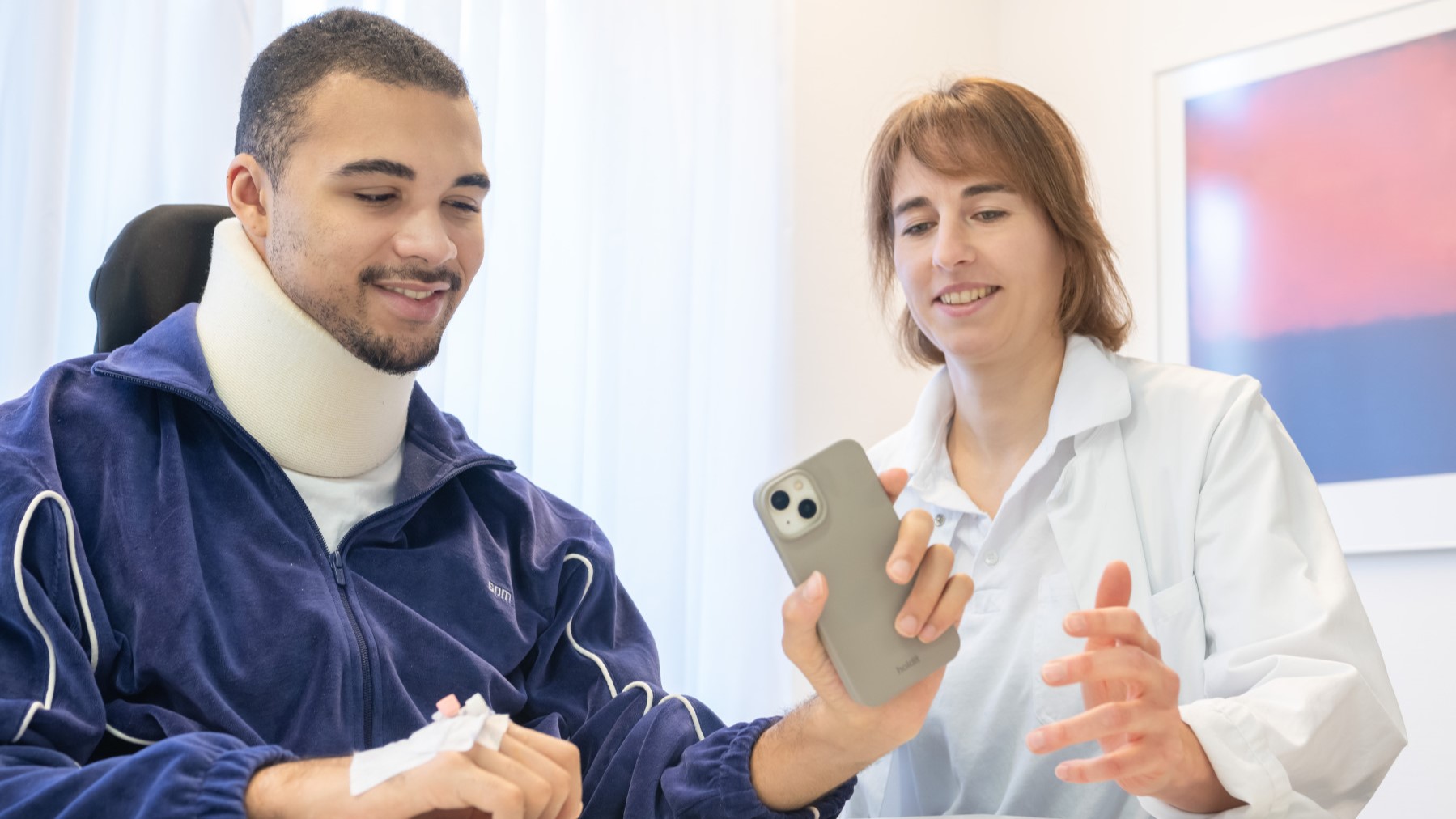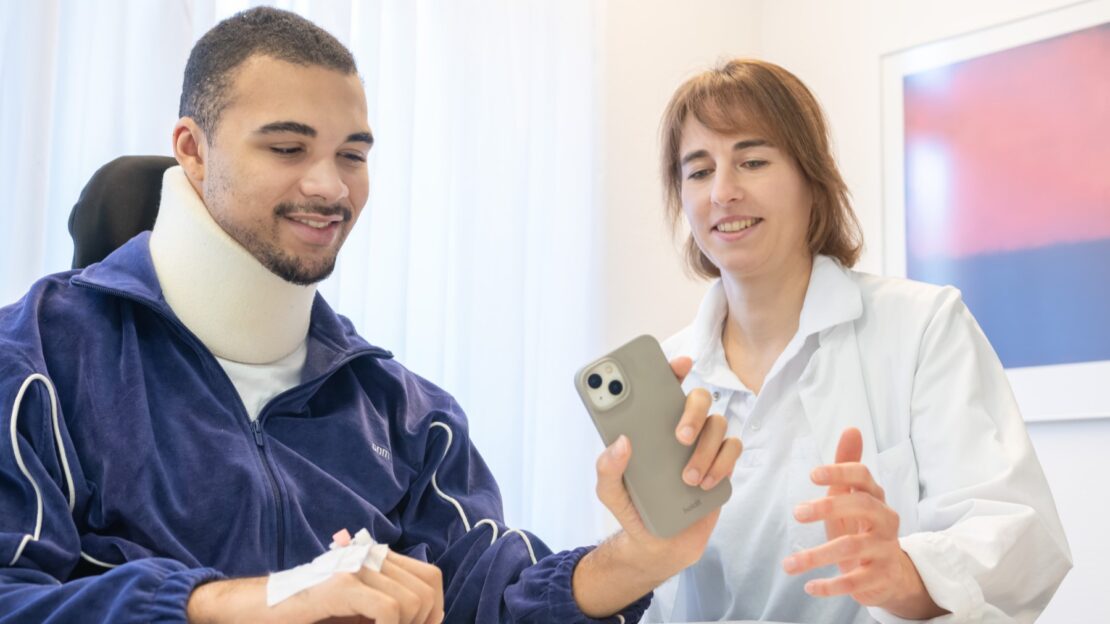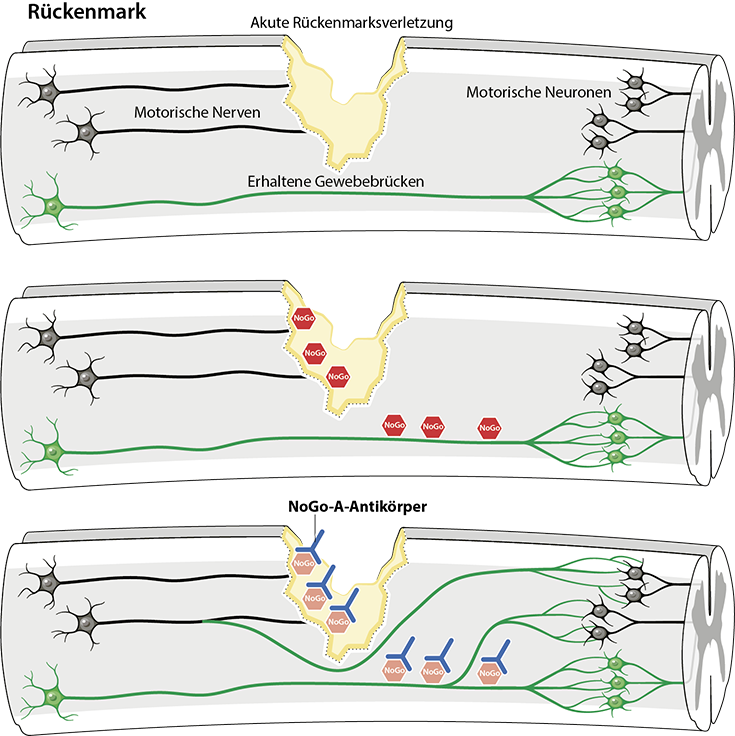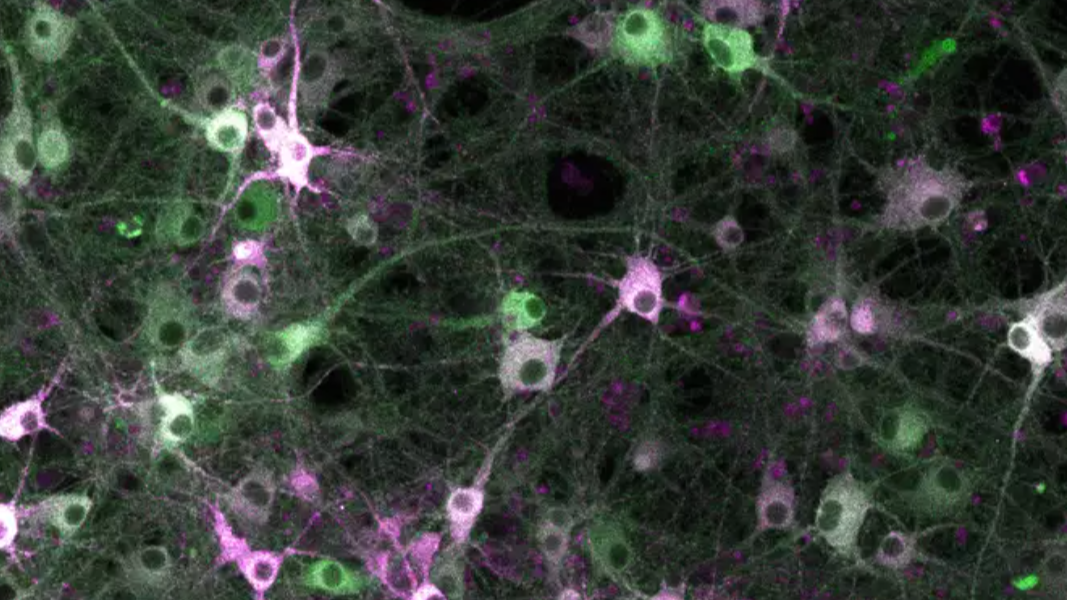Antibody that Neutralizes Inhibitory Factors Involved in Nerve Regeneration Leads to Enhanced Motor Function after Acute Spinal Cord Injury

Antibodies can improve the rehabilitation of people with acute spinal cord injury. Researchers at 13 clinics in Germany, Switzerland, the Czech Republic and Spain have investigated this with promising results. For the first time, it was possible to identify patient groups that displayed a clinically relevant treatment effect. A follow-up study will start in December 2024. The latest study results have been published online in the renowned “The Lancet Neurology” journal. Joint press release by Heidelberg University Hospital, the University of Zurich and Balgrist University Hospital Zurich.

A multi-centre clinical trial (NISCI trial: Nogo-A Inhibition in acute Spinal Cord Injury Study) investigated the antibody NG 101 (anti-Nogo-A), which blocks and thus neutralizes the body’s own Nogo-A protein. Several international studies in animal models have shown that this Nogo-A protein inhibits the regeneration of damaged nerve fibres in the spinal cord following an acute injury. The antibody is intended to slow down these inhibiting mechanisms in the body and thus enable the injured nerve tracts to regenerate and the spinal cord to recover.
126 people aged between 18 and 70 took part in the clinical study. They were all suffering from acute complete to incomplete spinal cord injury in the neck region (so called tetraplegia that also affects the arm and hand functions). 78 people were treated with the antibody that was injected directly into the spinal canal; the remaining 48 people received placebo. A complete treatment cycle consisted of six injections in parallel to comprehensive inpatient care. The study was randomized, double-blind and placebo-controlled, i.e. neither those being treated nor those administering the treatment knew who received the antibody and who was given the placebo. The patients were randomly assigned to a group.
Significant improvements in patients with incomplete spinal cord injury
The recovery of motor functions in the hand-arm muscles of the patients was investigated in a standardised manner. These muscle groups are particularly important for everyday life in patients with tetraplegia. After six months, the effect on the treated and untreated (placebo) patients was compared.
The treatment did not improve the recovery of motor functions in patients with complete spinal cord injury. In patients with incomplete spinal cord injury, the treatment led to significantly more improvement in the voluntary activation of the paralyzed muscles and in everyday life functional independence. The antibody was generally well tolerated, with no related side effects reported to date. The many years of research into antibodies in rehabilitation conducted under the leadership of Balgrist University Hospital are thus showing encouraging success.
These initial positive clinical findings in patients with acute tetraplegia must now be confirmed in further studies. A follow-up study with an improved antibody will start in December 2024. Patient subgroups with anticipated responsiveness to the treatment based on the results to date will be selected.

European cooperation
The multinational study was initiated and organized by the University of Zurich, Prof. Martin Schwab, and Balgrist University Hospital in Zurich, Prof. Armin Curt, in close collaboration with Heidelberg University Hospital, Prof. Norbert Weidner), who was responsible for the Lancet publication. It was made possible by and carried out in a European clinical network (www.emsci.org) which includes numerous centres specialised in treating patients with spinal cord injury in Germany, Switzerland, Spain and the Czech Republic. The follow-up study will also be conducted in this network.
The production of the test antibody was made possible as part of the CeNeReg project through collaboration with the Regenerative Medicine Technology Platform of the Wyss Zurich Translational Center. The NISCI study was financed by the EU’s Horizon 2020 Research and Innovation Programme, the Swiss State Secretariat for Education, Research and Innovation (SBFI), the Swiss Paraplegic Foundation, the Wings for Life research foundation, the “CeNeReg” project from the Wyss Zurich (University of Zurich and ETH Zurich) and the “International Research in Paraplegia” foundation.
Literature
Weidner N, Abel R, Maier D, et al. Safety and efficacy of intrathecal antibodies to Nogo-A in patients with acute cervical spinal cord injury: a randomised, double-blind, multicentre, placebo-controlled, phase 2b trial. Lancet Neurol. Published online December 18, 2024. doi: https://doi.org/10.1016/S1474-4422(24)00447-2
Contacts
Prof. Dr. Armin Curt, via Balgrist University Hospital, Corporate Communications,
Tel. +41 44 386 14 15 / kommunikation@balgrist.ch
Prof. Dr. Norbert Weidner, Spinal Cord Injury Center, Heidelberg University Hospital: presse@med.uni-heidelberg.de
Prof. Dr. Martin Schwab, Institute for Regenerative Medicine (IREM), Universität Zürich,
Tel. +41 79 774 60 52 / schwab@irem.uzh.ch




